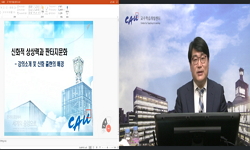경험론자로서 흠(D.Hume)은 ‘경험’을 통해 생긴 인상을 바탕으로 관념의 사실성과 허구성을 비판했다. 흠은 인간의 지각을 인상과 관념으로 구분한다. 인상은 지각을 의미하고, 관념은 지각...
http://chineseinput.net/에서 pinyin(병음)방식으로 중국어를 변환할 수 있습니다.
변환된 중국어를 복사하여 사용하시면 됩니다.
- 中文 을 입력하시려면 zhongwen을 입력하시고 space를누르시면됩니다.
- 北京 을 입력하시려면 beijing을 입력하시고 space를 누르시면 됩니다.
https://www.riss.kr/link?id=A109113387
- 저자
- 발행기관
- 학술지명
- 권호사항
-
발행연도
2024
-
작성언어
-
-
주제어
지각 ; 경험 ; 관념 ; 인상 ; 상상력 ; 허구성 ; 사실성 ; Perception ; Experience ; Ideas Imagination ; Impressions ; Fictionality ; Facticity
-
KDC
0
-
등재정보
KCI등재
-
자료형태
학술저널
-
수록면
133-156(24쪽)
- DOI식별코드
- 제공처
-
0
상세조회 -
0
다운로드
부가정보
국문 초록 (Abstract)
경험론자로서 흠(D.Hume)은 ‘경험’을 통해 생긴 인상을 바탕으로 관념의 사실성과 허구성을 비판했다. 흠은 인간의 지각을 인상과 관념으로 구분한다. 인상은 지각을 의미하고, 관념은 지각한 인상의 잔상이다. 이에 인상 없이는 결코 관념은 생겨날 수 없다.
흠은 과거와 현재 그리고 미래의 시공간에 대해 설명한다. 그는 현재의 시공간에서 경험하는 지각은 가장 생생한 것이라고 말한다. 이와 달리, 미래는 인간의 시공간적 제약으로 인해 경험할 수 없기 때문에 흠을 비롯한 경험론자들은 미래를 허구로 가득한 세계로 간주한다.
이 글은 흠을 비롯한 경험론자들이 말한 경험할 수 없는 미래 시간의 허구성에 대한 윤리적 함의를 찾고 있다. 과학기술의 발달로 미래 세계의 상상과 경험할 수 없는 시공간에 발생될 윤리적 문제들을 어떻게 대처해야 하는가? 이 글은 흠의 주장을 바탕으로 미래 시간의 상상과 허구성 그리고 그 허구로 가득 찬 미래 시간에 대한 윤리적 함의를 찾고 동시에 그 대안을 제시하고 있다.
다국어 초록 (Multilingual Abstract)
As an empiricist, D. Hume judged the reality or fiction of ideas based on impressions created through ‘experience.’ Hume divides human perception into impressions and ideas. An impression means perception, and an idea is an afterimage of a perceiv...
As an empiricist, D. Hume judged the reality or fiction of ideas based on impressions created through ‘experience.’ Hume divides human perception into impressions and ideas. An impression means perception, and an idea is an afterimage of a perceived impression. Accordingly, ideas can never arise without impressions.
Hume explains the space and time of the past, present, and future. He says that the perception experienced in the present time and space is the most vivid. In contrast, because the future cannot be experienced due to human limitations in time and space, empiricists, including Hume, regard the future as a world full of fiction.
This article explores the ethical implications of the fictitiousness of future time that cannot be experienced as argued by empiricists including Hume. How should we deal with the ethical issues that will arise in a time and space that cannot be imagined or experienced in the future world due to the development of science and technology? Based on Hume's argument, this article explores the fiction of future time and the ethical implications of a future time filled with that fiction, and at the same time presents an alternative.
동일학술지(권/호) 다른 논문
-
“AI for Humanity” : Fairness and the Optimization of Bias in AI
- 경남대학교 인문과학연구소
- ( Wonsup Jung )
- 2024
- KCI등재
-
연남동 가는 청년들: 문화산업이 재현하는 도시 공간에 관한 탐색적 연구
- 경남대학교 인문과학연구소
- 류웅재 ( Woongjae Ryoo )
- 2024
- KCI등재
-
이기호 소설에서 나타나는 웃음의 양상 연구 - 마조히즘적 웃음과 숭고한 웃음을 중심으로 -
- 경남대학교 인문과학연구소
- 안아름 ( A-reum An )
- 2024
- KCI등재
-
신체 유물론과 소외된 감성 공동체 - 헤겔과 맑스의 신체론을 중심으로 -
- 경남대학교 인문과학연구소
- 김현 ( Kim Hyun )
- 2024
- KCI등재





 KISS
KISS






